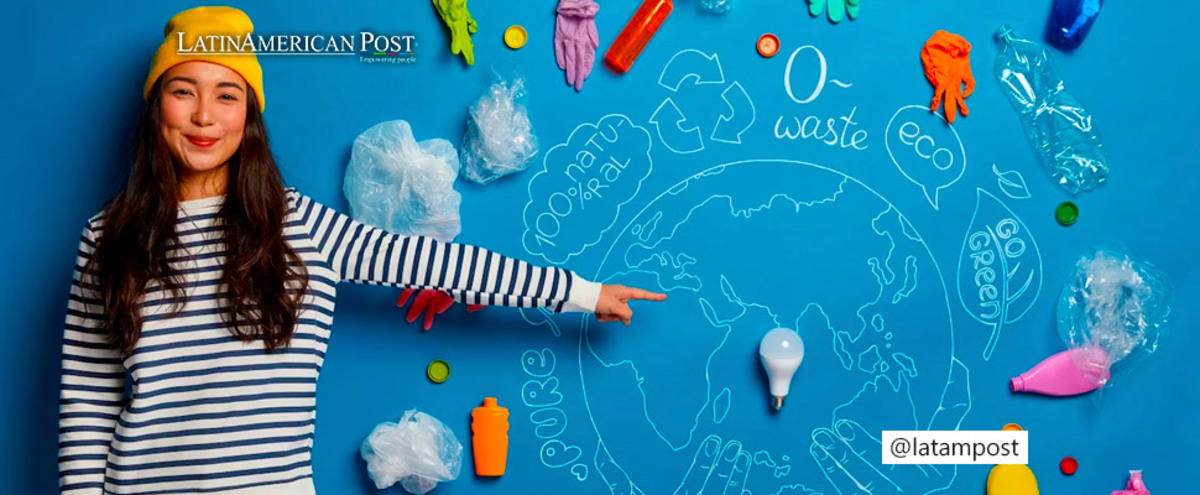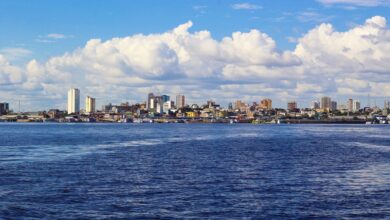Negotiations of the World Treaty Against Plastic Advanced in Paris
It is estimated that, to date, humanity has generated 7,000 million tons of plastic waste, so it is positive that more than a hundred countries have agreed to develop a treaty to curb this problem.

Photo: Freepik
LatinAmerican Post | Julián Andrés Pastrana Cuéllar
Listen to this article
Leer en español: En París avanzaron las negociaciones del tratado mundial contra el plástico
After arduous negotiations carried out between May 29 and June 2, delegates from 175 countries gathered in Paris to advance a global treaty against plastic pollution agreed to build a first version of this document. A minimum agreement was reached, which must urgently move towards a global treaty. This should be presented at the next day of discussion that will take place in Kenya next November. However, before that, there will be 3 more negotiation rounds. Each meeting constitutes substantial progress with a view to having a final text ready in 2024.
Undoubtedly, plastic pollution is an increasingly tangible issue that demands urgent intervention. Not in vain, according to UN figures, in the next 20 years the presence of plastic waste in the sea could double, reaching the scandalous figure of between 23 and 37 million tons per year in 2040. By 2050, there could be more plastics than fish in the sea, and the damage is incalculable.
Therein lies the importance of the fact that the French capital has hosted this week the second of five sessions of the International Negotiations Committee, also known as CIN-2, whose purpose was to advance in the construction of a World Plastics Treaty. This is a legally binding tool that helps curb pollution by this material, especially in the oceans. A crucial issue is that not only recycling and the circular economy must be increased, but also the production of plastics must be curbed.
We recommend you read: Infographic: The Citizens of Which Countries Care The Most About the Environment?
Paris, epicenter of the fight against plastic pollution
Local media reported that for five days the UNESCO headquarters in Paris welcomed not only representatives of 175 countries, but also NGOs and companies from the plastic sector, so that they jointly discussed measures to contain the adverse effects to eradicate this element in ecosystems. It should be said that the presence of plastic industrialists was criticized by some activists.
The meeting was blocked for two days due to the refusal of Saudi Arabia, Brazil, China, several Gulf countries, Russia and India to approve the eventual text, in the event that consensus is not reached, by a qualified majority of two thirds. In this regard, France 24 reported that the majority of delegates agreed on the importance of holding, as a last resort, a vote that would allow the initiative to move forward despite the boycott of a minority.
After overcoming this setback, significant progress could be made, as highlighted by the WWF organization. Among them, it stands out that 135 states now agree on the application of binding global rules that all countries must adopt equally. In addition, 94 states have called for the treaty to prioritize the eradication of problematic polymers, chemicals, and high-risk plastic products. For its part, WWF welcomes the fact that countries such as Japan, Mauritius, and Gabon have joined the High Ambition Coalition to End Plastic Pollution.
Background to the treaty
The process that is expected to lead to this crucial treaty began in February 2022, within the framework of the fifth session of the United Nations Environment Assembly, with the adoption of a resolution that called for the development of this legal instrument. It is projected that the consolidation of this treaty should take place after a negotiation process that should conclude in 2024.
It aims to build a binding tool that promotes the sustainable production and consumption of plastic, appealing to the environmentally sound management of waste through initiatives such as the so-called circular economy.
A vital necessity considering that, according to UN figures, 400 million tons of plastic are manufactured annually in the world, of which a third corresponds to single-use plastics. Every day, the equivalent of 2,000 garbage trucks full of this polluting material is dumped into water sources (seas, rivers, and lakes), the presence of which has already been detected in the stomachs of birds and even in blood and breast milk, and the human placenta with quite deleterious effects.




